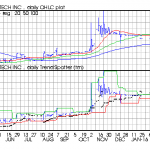One of Candidate Trump’s biggest priorities was to renegotiate NAFTA. Seen as an accelerator for harm not just inside of the nation’s rust belt, the incoming administration made it a top priority. Blaming the trade deal for the loss of 700k manufacturing jobs, Robert Lighthizer, the US’s top trade official for the renegotiation process, said in August as talks got underway, “For countless Americans, this agreement has failed.”
Canada and Mexico, of course, don’t quite see it that way. Officials from those two countries struck a very positive tone in sharp contrast. They signaled a readiness to redo the treaty, but only insofar as it might be “modernized.”
Despite what looks to be contentious bargaining, the conference was put on an accelerated schedule. Round 1 started in August and was to take on one of the most crucial, and combative, parts – rules of origin. In all, there was expected to be seven rounds to the process, all completed by December, early 2018 at the latest.
The condensed nature of the renegotiation is actually being pressed by the Mexican delegation. Current President Enrique Peña Nieto is prevented from seeking a third term, making next year’s election an overriding concern. Economy Secretary Ildefonso Guajardo, that country’s lead representative, repeatedly warned throughout early 2017 that no new NAFTA agreement would be possible during the 2018 election campaign.
There seems to be a lazy shorthand emerging with regard to these talks anyway, and the implications for their outcome. In other words, the mainstream assessment appears to see them as a negative especially for Mexico. Whether or not that’s true doesn’t really matter; what does is that whenever the Mexican peso falls against the dollar it is immediately blamed on whichever round of renegotiations happens to be most recent.
When the peso was pounded throughout October, for example, that was surely because of Round 4.
After rallying for much of 2017, the peso has tumbled more than 7 per cent against the dollar over the past month, making it the worst-performing emerging market currency over the period.
The fourth of seven rounds of talks on renegotiating Nafta, a landmark free-trade deal between the US, Mexico and Canada that came into effect in 1994, has been particularly harsh on the peso in recent days.












Leave A Comment